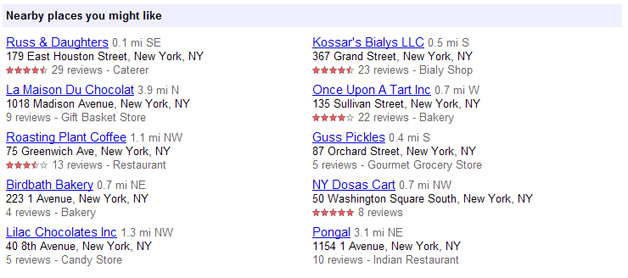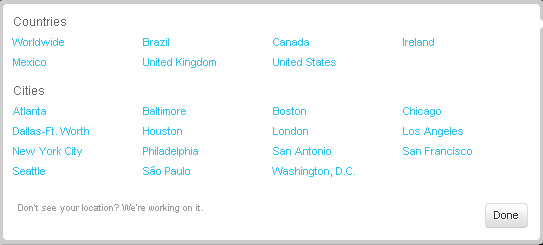Is the world really ready for geo-location? That’s a question that a lot of companies are answering with a resounding "yes." The rise of smartphones has led to a variety of businesses looking to cash in on your whereabouts. Smartphone users have their devices on them all day long, wherever they go. Naturally, these companies can find ways to capitalize on this.
Will location sharing become mainstream practice? Share your thoughts.
Google can use your location to deliver you "more relevant" search results on your phone. It can let you and your friends let each other know your respective locations. It can point you to local stores competing for your attention and ultimately your business. Google can serve you ads based on your location. Just last week, the company introduced mobile ads with phone numbers you can click to call.
"The ads and phone numbers you see are based on your location," the company says. "So, if a store or restaurant has multiple locations, you’ll be calling the nearest one, and not making reservations in some other city."

A couple months ago, Twitter made it possible to geotag tweets, and will likely expand its geo-related capabilities as the new year progresses.
"The added information provides valuable context when reading your friends tweets and allows you to better focus in on local conversations," Twitter said, when it announced geotagging. "Now you can find out what live music is playing right now in your neighborhood or what people visiting Checkpoint Charlie are saying today about the anniversary of the Berlin Wall. These are only the beginning and we are really looking forward to seeing the creative uses emerge from the developer community."
The world is still waiting on Twitter to really get into the monetization side of things, but that will happen sooner or later. It will be quite interesting to see what role geo-location plays in that.

Meanwhile, Facebook, the world’s most popular mobile social site, has recently updated its privacy policy in a way that allows for location-based features, and is rumored to be working on its own "Foursquare killer". Some think once Facebook gets going on geo-location, there will be no stopping it, and no hope for currently popular mobile geo-apps like Foursquare and Gowalla (the former having just gotten involved with perhaps its most mainstream effort yet in a deal with cable network Bravo).
"The popularity of the apps has attracted notice from other Web startups that rely on local advertising," says BusinessWeek’s Aaron Ricadela. "Foursquare boasts nearly 300,000 users, and Gowalla has more than 100,000. On Jan. 15, Yelp—a Web site that reviews shops, restaurants, and night spots and that on Jan. 27 announced a round of funding worth up to $100 million—introduced the ability for users of its iPhone app to check in at businesses."
"Now, as tech industry heavyweights such as Google (GOOG), Apple (AAPL), Microsoft (MSFT), Twitter, and IAC/Interactive (IACI) try to capitalize on the smart phone explosion with mobile ads that target people where they congregate, startups compiling a trove of data about users’ migratory habits could make attractive acquisition targets for those companies," adds Ricadela. "At one point in January, a Foursquare user was checking into a location every second, the company said."
That’s a sign that the people who are into sharing their location are really into it. But is the number of people willing a majority? Does it have the potential to become one? With so many privacy concerns frequently voiced around the web each day, it is hard to imagine, but that’s not to say that geo-location-related businesses have to secure a majority of the public to be successful. There are plenty of people left in this world who are still leery of even social media for privacy and reputation reaons, let alone a service that lets people know exactly where they are.
But obviously there are plenty of people up for this kind of thing, and enough so that businesses everywhere should take note. Many aready have, but the public’s willingness to share their location is still uncharted territory for many small businesses that could be taking advantage of this phenomenon.
So what can a business do? Here are a few things:
1. Keep up with what mobile apps are popular on the most popular devices
2. Study what makes these apps and their respective users tick.
3. Determine which of these has a functionality that your business can directly take advantage of
4. Verify your business at Google’s Local Business Center
5. Keep a close eye on what Google is doing in the local search space (there are frequent announcements that directly relate to this)
6. Keep a close eye on how Twitter users interact with geo features, particularly those who follow you
7. Definitely keep a close eye on Facebook announcements, looking for geo-related tidbits to drop
8. When using social media, include your business location in updates when appropriate, and promote offers (time-sensitive perhaps) that encourage nearby people to stop in (if you have a brick and mortar store) or meet for a quote at a nearby restaurant for example (be creative…without being too stalkerish)
Share other ideas here.
It’s important to consider that people who are sharing their location are opting in to do so. Google users have to share their location with Google to get the benefits Google has to offer from this information. If they are showing their location with the public on Twitter, they must be comfortable with anybody knowing that location. Apps like Foursquare make games out of location, and even offer ideas for businesses to get directly involved.
What ways have you used customer location in your business strategy? Discuss here.
Related Articles:
> Twitter Makes Geotagging Tweets Possible
> Facebook Most Popular Mobile Social Website
> Google Simplifies Finding Nearby Businesses from Your Phone
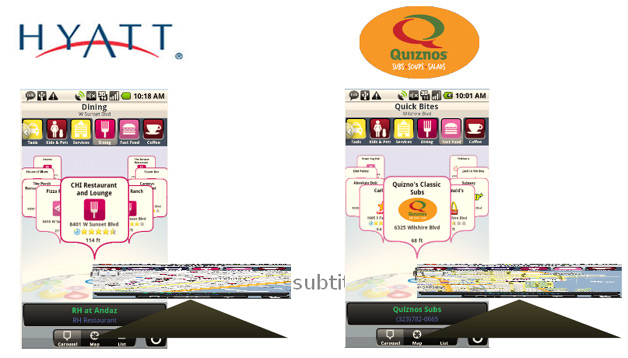
 Still, MerchantCircle was already getting a great deal of use before that partnership came along, and it will be interesting to see how it does in new territory.
Still, MerchantCircle was already getting a great deal of use before that partnership came along, and it will be interesting to see how it does in new territory.  Google has been
Google has been  In a
In a 
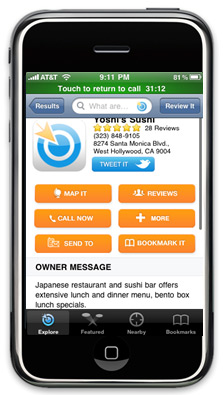
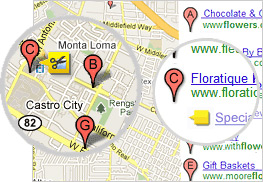 Google promised that while the offering was starting out in a limited number of cities, that number would be expanding. The expansion process is underway. Google has now announced the addition of 11 new cities.
Google promised that while the offering was starting out in a limited number of cities, that number would be expanding. The expansion process is underway. Google has now announced the addition of 11 new cities.
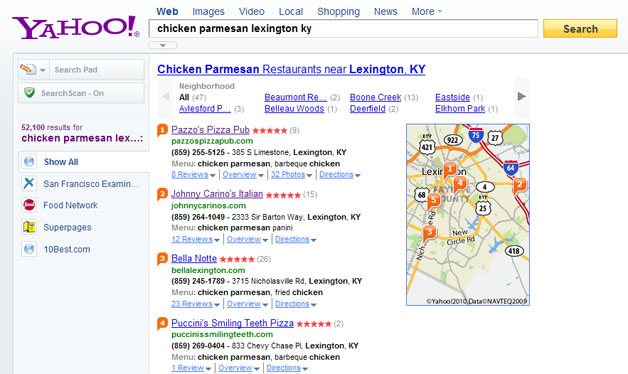
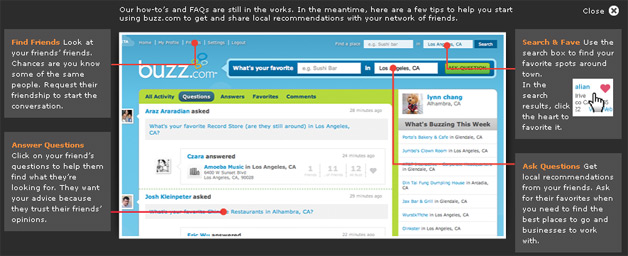


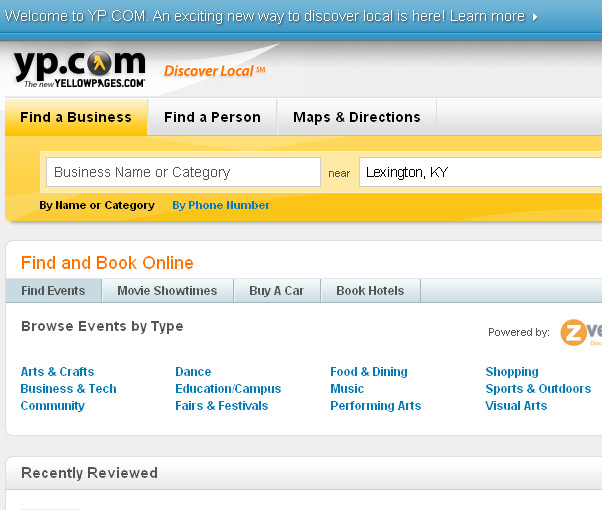

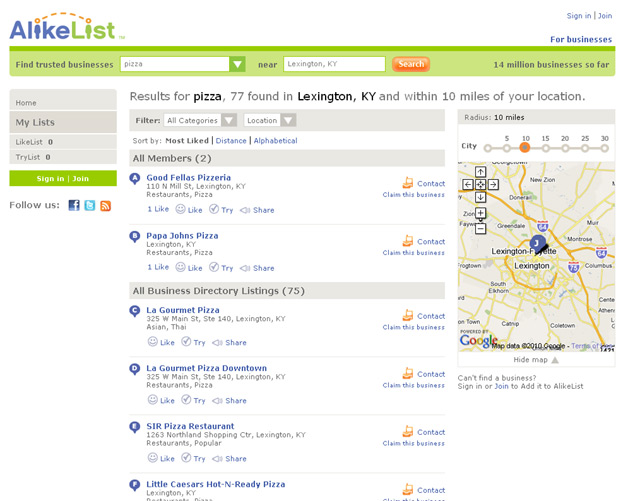
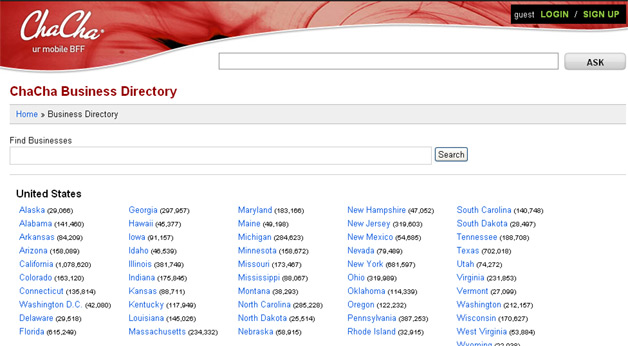
 Google is offering suggestions for "nearby places you might like" on Google Maps when you look up a place that you do like. So if you like a particular bakery, you might be presented with other places within the same vicinity that Google thinks you might also be interested in trying.
Google is offering suggestions for "nearby places you might like" on Google Maps when you look up a place that you do like. So if you like a particular bakery, you might be presented with other places within the same vicinity that Google thinks you might also be interested in trying. 